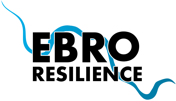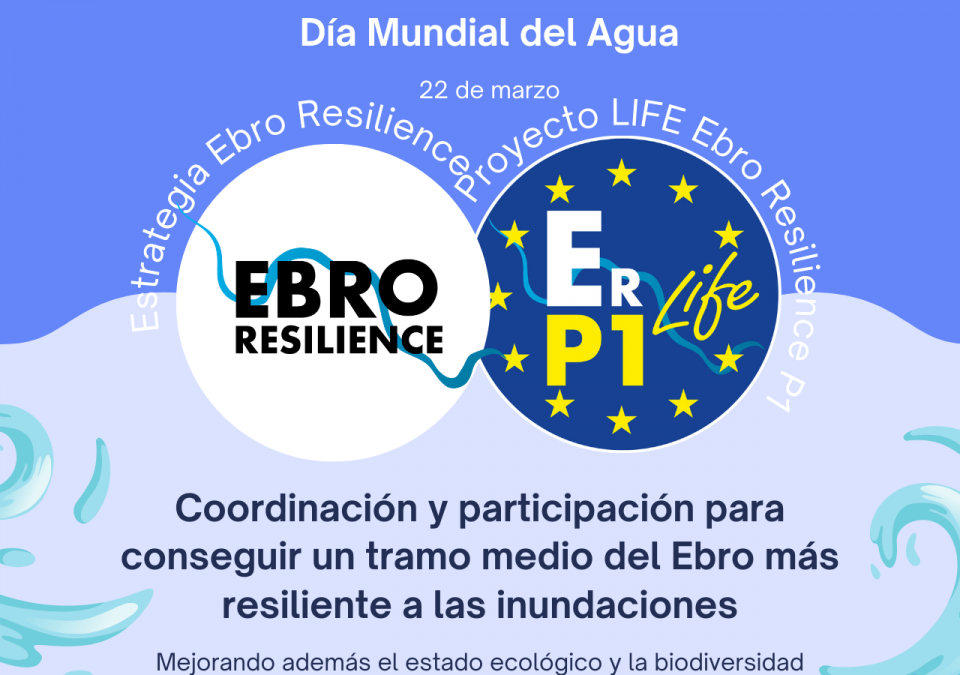Coordination and participation as a tool to achieve a more flood-resilient middle Ebro, improving the ecological status and local biodiversity.
In the framework of World Water Day, which is celebrated every March 22nd, the Strategy Ebro Strategy Resilience Strategy Strategy takes on special relevance as it focuses on the reduction of the effects of flood risk in the middle stretch of the Ebro River.
Global warming is causing a number of significant changes in our environment. The increase in temperature is causing a rise in sea level, alterations in rainfall patterns and a concentration of river flows in shorter periods of time. These phenomena are giving rise to droughts in some regions and floods in others.
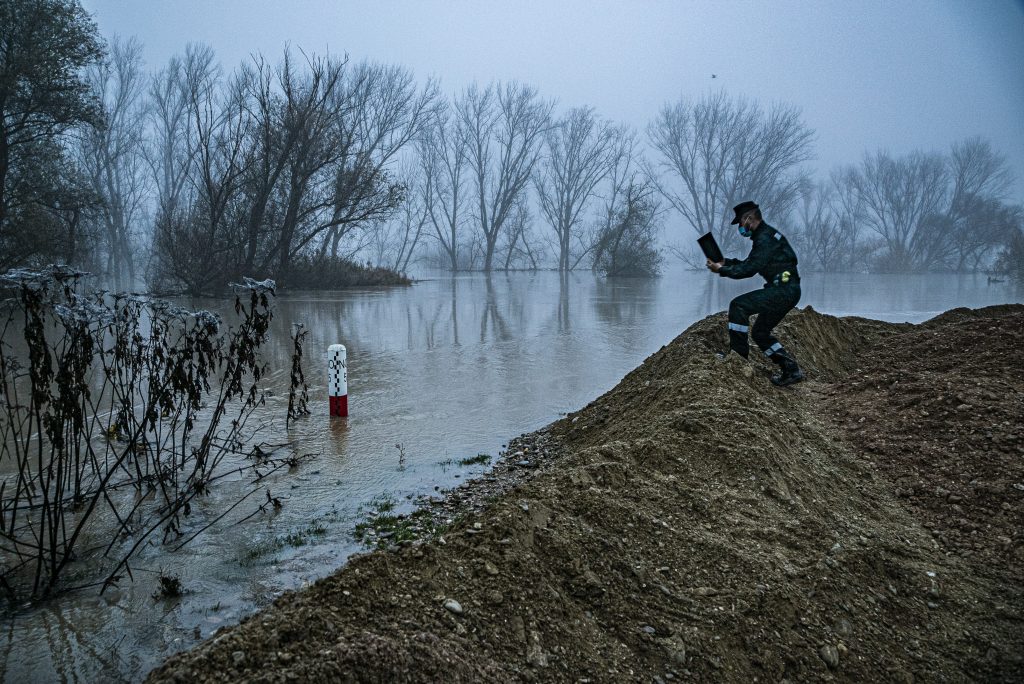
Floods represent the extreme event that causes the most economic damage in Spain and Europe. The middle stretch of the Ebro River is classified as a high probability flood zone. A large part of this area is also declared as significant high risk.
In this regard, the proceedings of the Ebro Resilience Strategy and of the LIFE Project Ebro Resilience P1 The objective is to reduce the effects of flooding in the middle stretch of the Ebro River, but also to improve the environment in the areas of intervention and the active involvement of the population in the process. All of this is based on inter-administrative coordination, adaptation to flooding and risk reduction, which implies avoiding exposure, both personal and material, to this phenomenon.
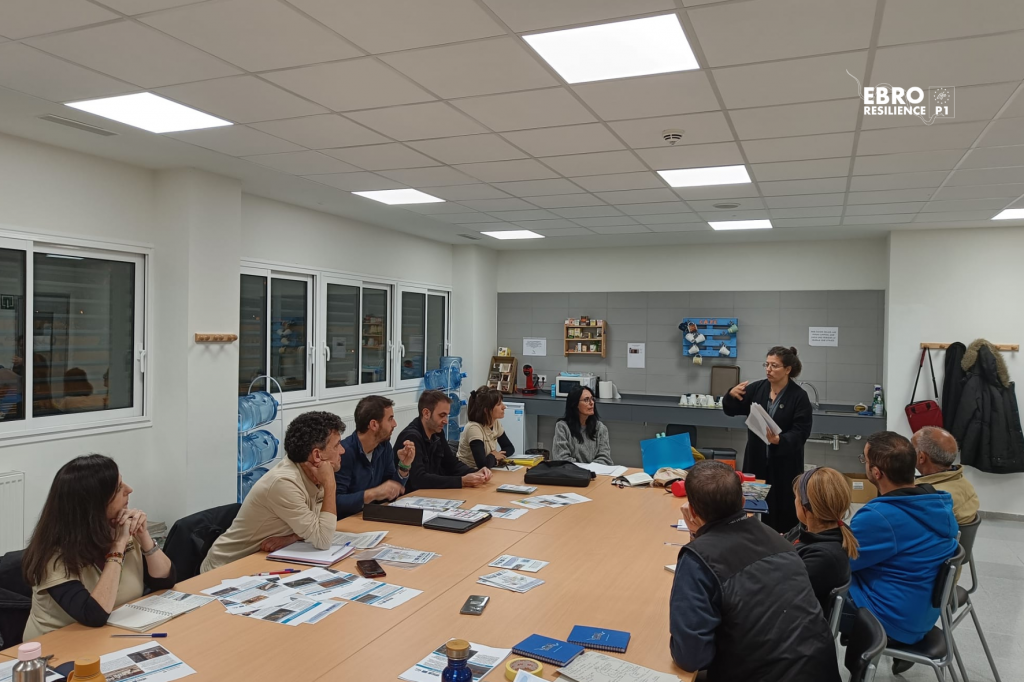
Both tools are conceived as collaborative mechanisms for carrying out actions in the middle stretch of the Ebro, applying combined measures to improve resilience to floods, recognizing that these phenomena are natural and inevitable, and that there is no single effective solution. In addition, these measures are oriented towards interventions compatible with sustainable development, seeking to balance the protection of the population and ecosystems with the promotion of responsible and efficient use of water resources.
Some of the measures developed, such as the recovery of flood plains, the recovery of lost river branches, the creation of relief channels, the reconnection of old or former riverbeds and galachos also allow the recovery of wetlands and the restoration of their associatedecosystems .
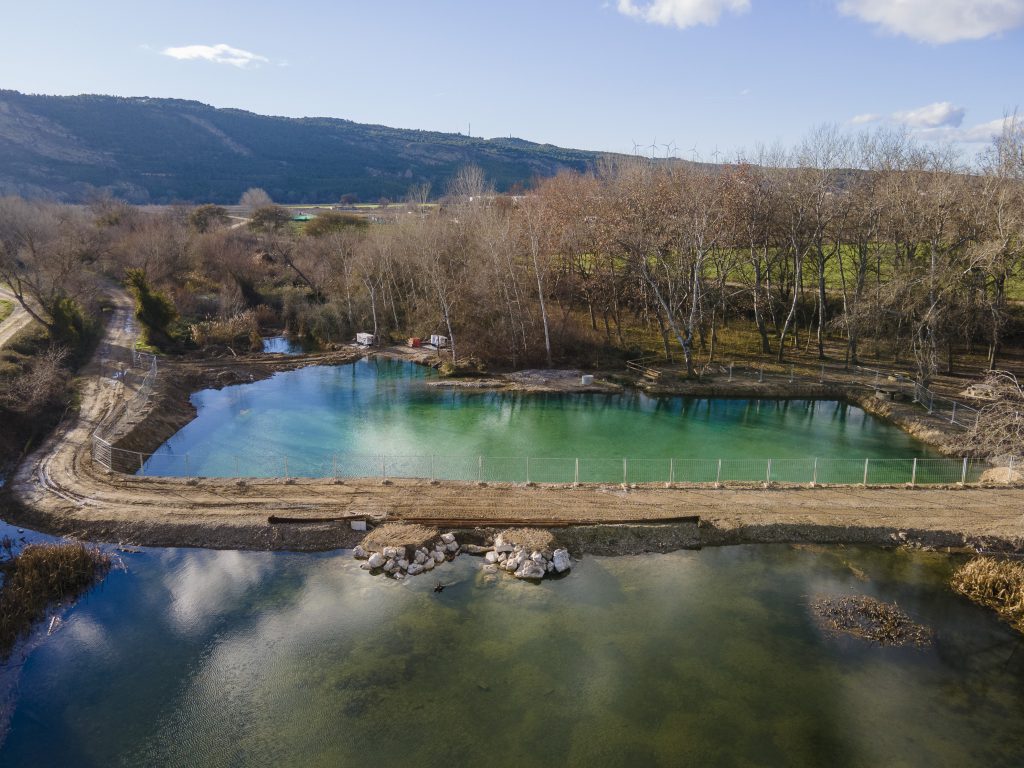
In the current global context, marked by climate change and the growing vulnerability to natural disasters, initiatives such as the Ebro Resilience Strategy and the LIFE Ebro Resilience P1 Project The importance of the floods is crucial in providing comprehensive and collaborative strategies to reduce the negative impacts of floods while promoting the improvement of the various river ecosystems.
That is why today, on World Water Day, it is essential to highlight the relevance of both mechanisms, which work to strengthen the resilience of communities and ecosystems in the face of water challenges in the 21st century.
